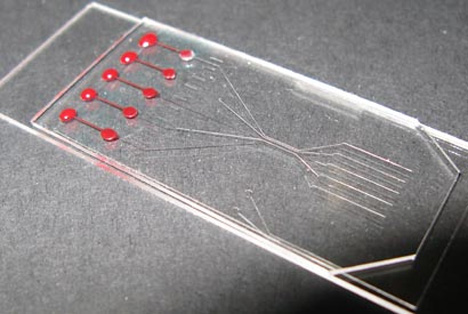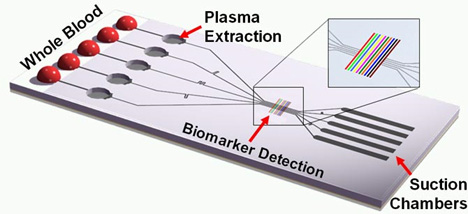
The ability to diagnose diseases quickly, accurately and inexpensively can make a huge difference in global health, but so far our diagnostic methods are all fairly involved, not to mention costly and time-consuming. A team of researchers from UC Berkeley, Dublin City University and Universidad de Valpairaiso has made an astounding breakthrough in the field of microfluidics that could revolutionize the way diseases are diagnosed and treated in remote locations and third-world countries. The Self-powered Integrated Microfluidic Blood Analysis System (or SIMBAS) is basically a diagnostic lab on a single chip that diagnoses blood diseases in a matter of minutes without the use of electricity, chemicals or any special equipment.

The SIMBAS chip takes whole blood samples and uses tiny microfluidic channels to separate plasma from blood cells. Gravity pulls the blood cell samples through the biomarker detection area and the chip is able to provide an accurate diagnosis for diseases like AIDS and tuberculosis within 10 minutes. The 1-inch X 2-inch chip is inexpensive to produce, doesn’t take up much space and can be used anywhere. According to the researchers, the SIMBAS chip is as easy to use as a home pregnancy test and as accurate as a traditional lab test – and it could save millions of lives. Eventually, the same technology could be used to diagnose conditions like heart disease, sepsis, cancer and other diseases in developed countries also.

